Red velvet cake isn’t just any cake. This cake, with its stunning red color and hint of chocolatey goodness, is a total showstopper and way easier to make than it looks. This recipe promises a moist, flavorful cake with a delicate crumb that’s sure to impress. But the real crowning glory? The creamy, tangy cream cheese frosting that pairs perfectly with the cake’s rich flavors, adding a luxurious finish that makes this dessert truly unforgettable.
Can’t get enough red velvet? You need to make these fabulous red velvet cupcakes! Don’t love food coloring? Check out our naturally red velvet cake!
Why Our Recipe
- The stunning red hue makes for a show-stopping dessert.
- Achieves the perfect balance between moistness and fluffiness.
- Customizable to easily adjust the cocoa for a brighter red color.
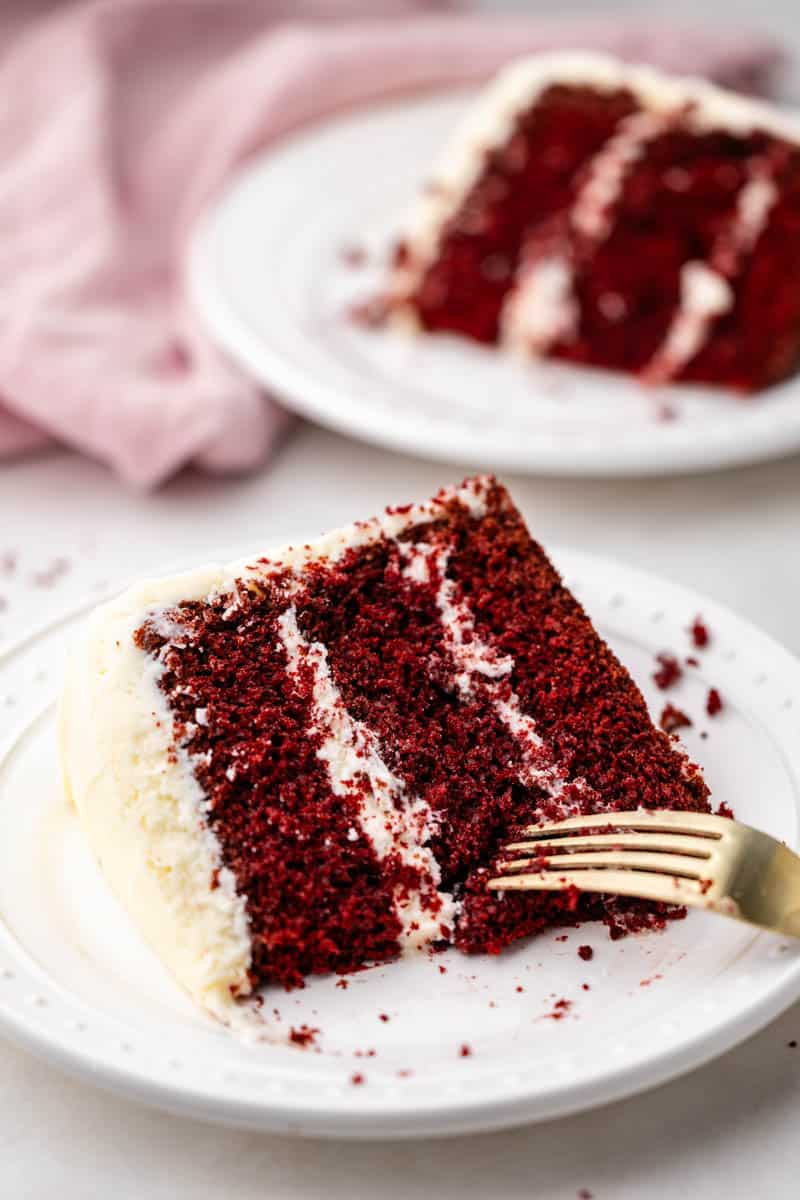
Red velvet cake is a blend between chocolate and vanilla, but neither flavor dominates. The cocoa powder imparts a subtle chocolatey hint without making it as rich as a full-blown chocolate cake. Meanwhile, the buttermilk and vinegar introduce a faint tanginess, balancing out the sweetness. This cake’s delicate dance of flavors, complemented by the creamy tang of cream cheese frosting, renders it unmistakably distinctive. It’s neither overtly chocolate nor purely vanilla, but rather a delicious in-between.
Ingredients & Substitutions
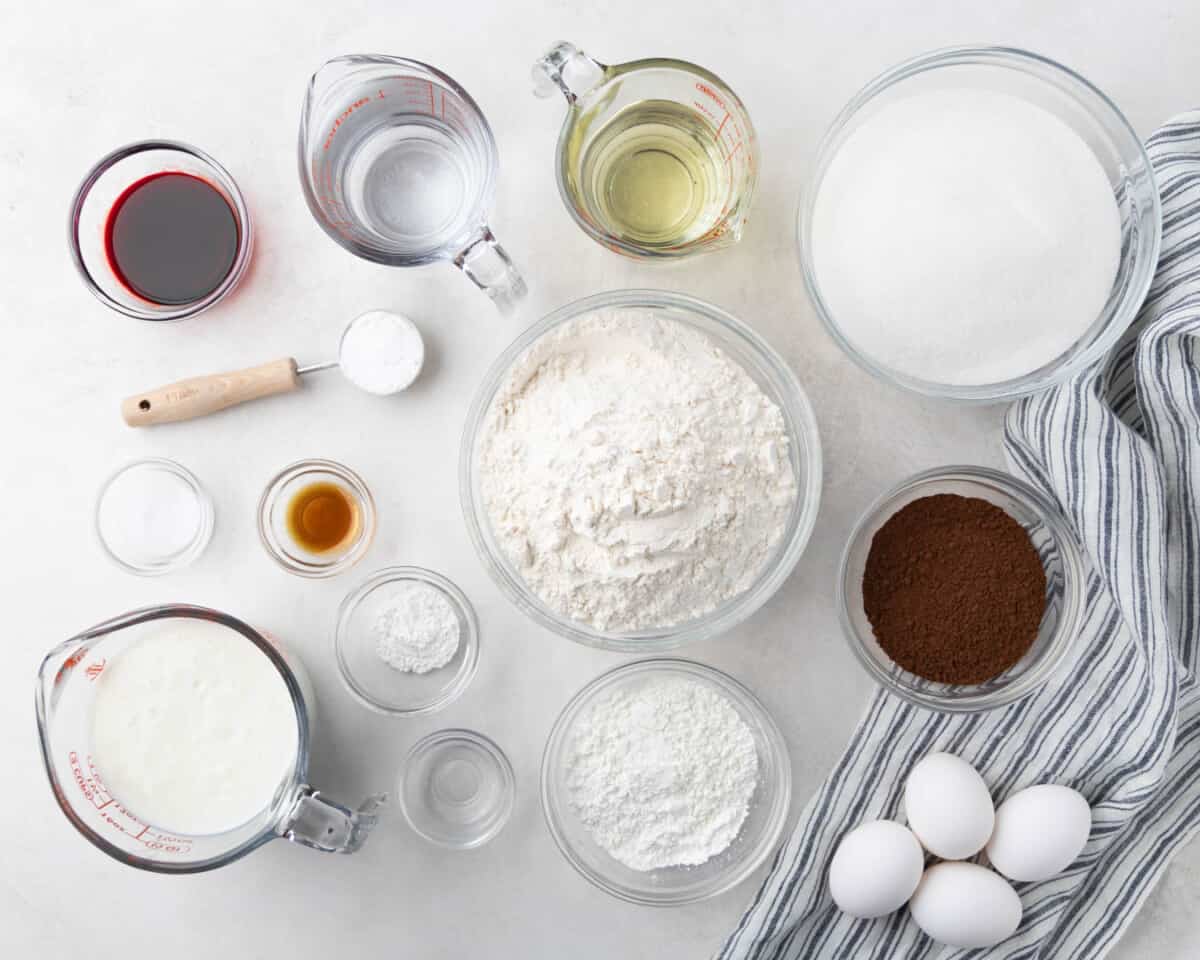
- All-purpose flour: The main structural component. It provides the cake’s texture and body. Cake flour can be used, though it is more fragile than all purpose flour and needs to be handled gently to prevent over-mixing.
- Cocoa powder: Imparts a slight chocolate flavor, giving depth to the cake’s taste. It also plays a role in the cake’s color. Dutch-processed cocoa can be used. Reduce amount of cocoa to 1/4 cup for a brighter red hue.
- Buttermilk: Adds acidity, tanginess, and moisture. Reacts with baking soda to help the cake rise.
- Eggs: Provides structure, moisture, and richness. Also aids in leavening.
- Vegetable Oil: Adds moisture and ensures a soft texture. Substitute with melted butter or canola oil.
Using substitutions can affect final taste and texture.
Frequently Asked Questions
While a stand mixer makes the process smoother, you can still achieve a delightful cake without one. A hand mixer or even some good old-fashioned elbow grease and a whisk will do. The key is to ensure your ingredients are well combined and the batter is smooth.
We always recommend letting your ingredients come to room temperature, but if you don’t, your cake will still turn out delicious!
Historically, a chemical reaction between the acidic ingredients and cocoa gave the cake its reddish hue. However, with the advent of Dutch-processed cocoa, this changed, leading to the introduction of red food dye. For a natural red, consider using beet or pomegranate juice.
This recipe was made and tested using red liquid food coloring. You can also use gel food coloring or a natural red food coloring made from beets. You can find a wide variety of natural food dyes on Amazon.
What size cake pan should I use?
You can use almost any size or style pan. Different sizes will require slight changes to the baking time and you will also need to make sure you have enough frosting on hand. See our cake conversion guide below for your preferred baking pan size.
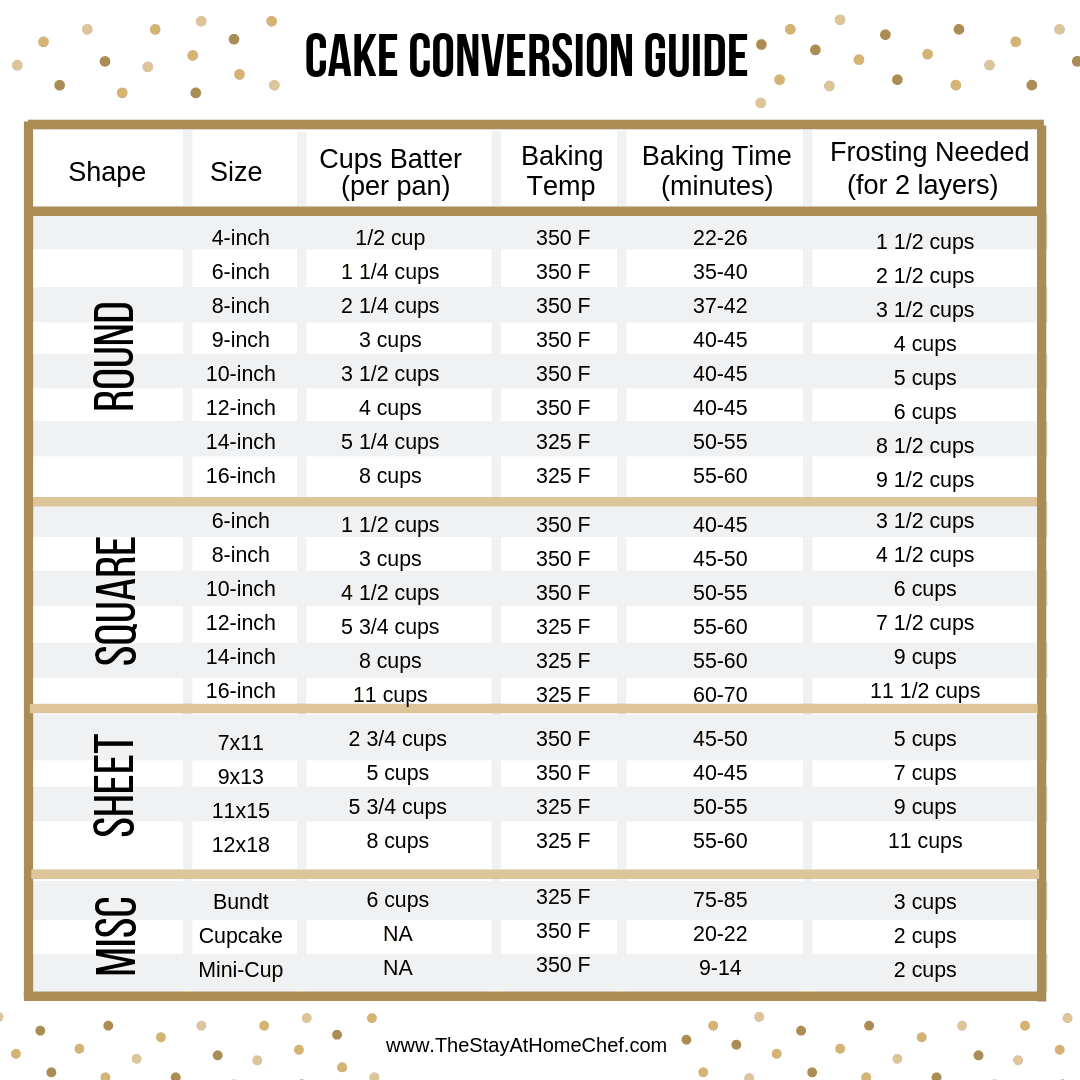
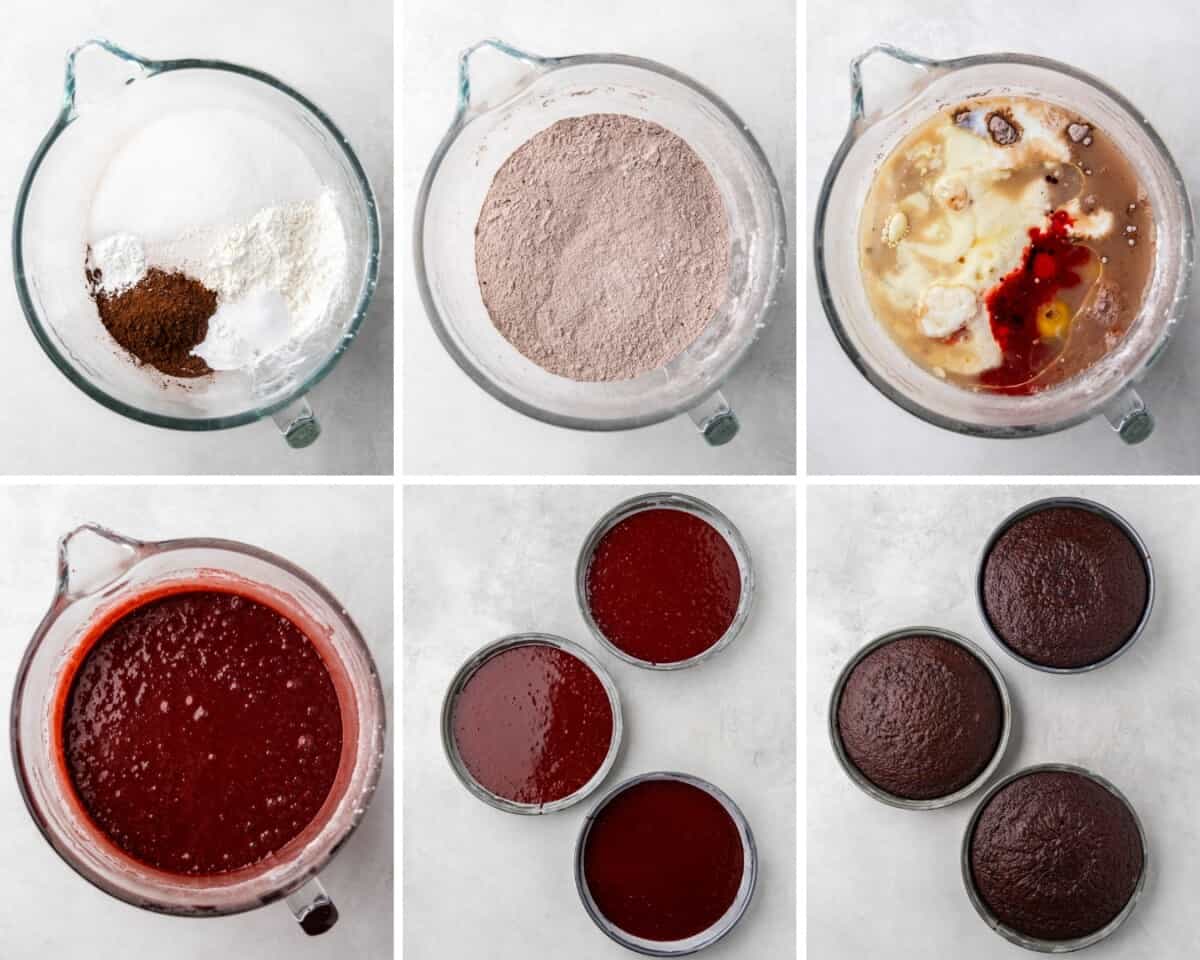
Egg Substitutes in Cake Baking
- 1/4 cup plain yogurt
- 1 tablespoon vinegar + 1 teaspoon baking powder, whisked together
- 1/4 cup mashed banana
- 1/4 cup unsweetened applesauce
- Commercial egg replacer
What frosting should I use on red velvet cake?
Red velvet cake pairs beautifully with a variety of frostings, though I just can’t imagine red velvet cake without cream cheese frosting. Here are a few delicious frosting options to choose from:
- Cream Cheese Frosting: The classic choice for red velvet cake, cream cheese frosting offers a rich, tangy complement to the cake’s subtle cocoa flavor. Its creamy texture and decadent taste make it a perennial favorite.
- Ermine Frosting: Also known as boiled milk frosting, Ermine frosting provides a lighter alternative with a fluffy texture and a subtle sweetness. It’s a traditional choice that pairs wonderfully with the cake’s hint of chocolate.
- Buttercream Frosting: For those who prefer a silky smooth and sweet option, buttercream frosting is ideal. It’s versatile enough to be flavored or colored and provides a classic, elegant finish to the cake.
Troubleshooting
- Cake is too dry: Keep a close eye on your baking time and use a toothpick to test for doneness. Ensure you’re using the correct measurements of liquid ingredients like oil and buttermilk.
- Cake layers sunk in the middle: Avoid opening the oven door during the initial stages of baking. Check the accuracy of oven temperature with an oven thermometer and ensure leavening agents are fresh.
- Cracks on the top of the cake: Mix the batter just until combined. Double-check measurements of baking agents and verify oven temperature with an oven thermometer.
Tips From the Chef
- To achieve a smoother batter, let your eggs and dairy ingredients come to room temperature before mixing.
- If using gel food coloring, remember it’s more concentrated. Adjust the quantity accordingly.
- Always preheat your oven. An oven that hasn’t reached its set temperature can affect the cake’s rise and texture.
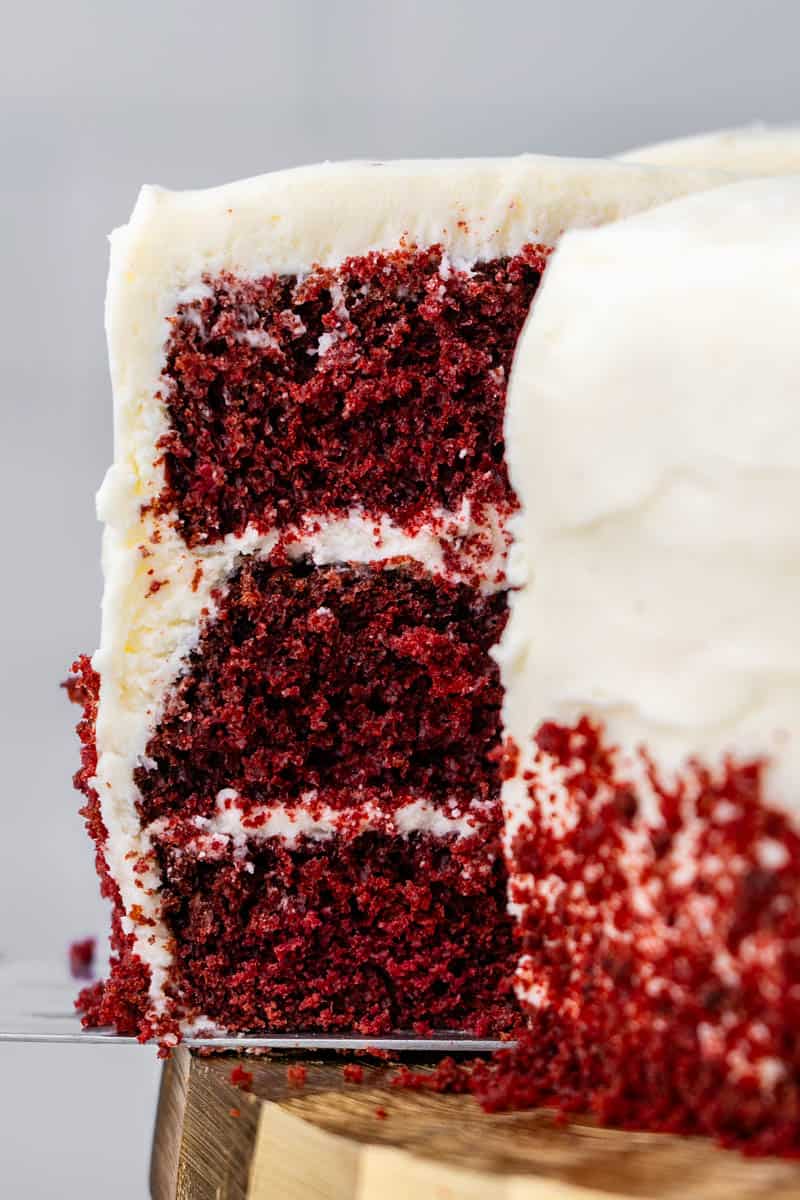
Red Velvet Cake Storage & Make Ahead Instructions
Make Ahead
- Cake Layers: Bake the cake layers up to two days in advance. Once cooled, wrap each layer tightly in plastic wrap and store at room temperature until you’re ready to frost and assemble.
- Frosting: Cream cheese, Ermine, or buttercream frosting can be made ahead and stored in the refrigerator. Cream cheese and Ermine frostings can be kept for up to three days, while buttercream can last up to a week. Before using, let the frosting come to room temperature and give it a good stir to ensure it’s smooth and spreadable.
Freezing
- Cake Layers: For longer storage, wrap the cooled cake layers individually in plastic wrap, then in aluminum foil, and freeze for up to 3 months. Thaw overnight in the refrigerator before frosting and assembling.
- Frosting: Most frostings freeze well. Store in an airtight container for up to 3 months. Thaw in the refrigerator, then bring to room temperature and rewhip if necessary to restore texture.
- Assembled Cake: A fully assembled and frosted cake can also be frozen. Freeze the cake uncovered until the frosting is firm, then wrap in plastic wrap followed by foil. To serve, thaw in the refrigerator overnight, and then bring to room temperature.
Storage
- Room Temperature: A fully assembled cake can be kept at room temperature for up to 24 hours, as long as it’s in a cool place and covered to protect it from drying out.
- Refrigerator: For longer storage, keep the frosted cake in the fridge. Cover it with a cake dome or an inverted bowl to prevent it from absorbing fridge odors. It can last for up to 5 days. Allow the cake to sit at room temperature for an hour before serving to ensure the best flavor and texture.
- Note on Cream Cheese Frosting: Cakes frosted with cream cheese frosting should be stored in the refrigerator due to the perishable nature of the frosting.
More Amazing Cake Recipes
Watch the video below where Rachel will walk you through every step of this recipe. Sometimes it helps to have a visual, and we’ve always got you covered with our cooking show. You can find the complete collection of recipes on YouTube, Facebook Watch, or our Facebook Page, or right here on our website with their corresponding recipes.
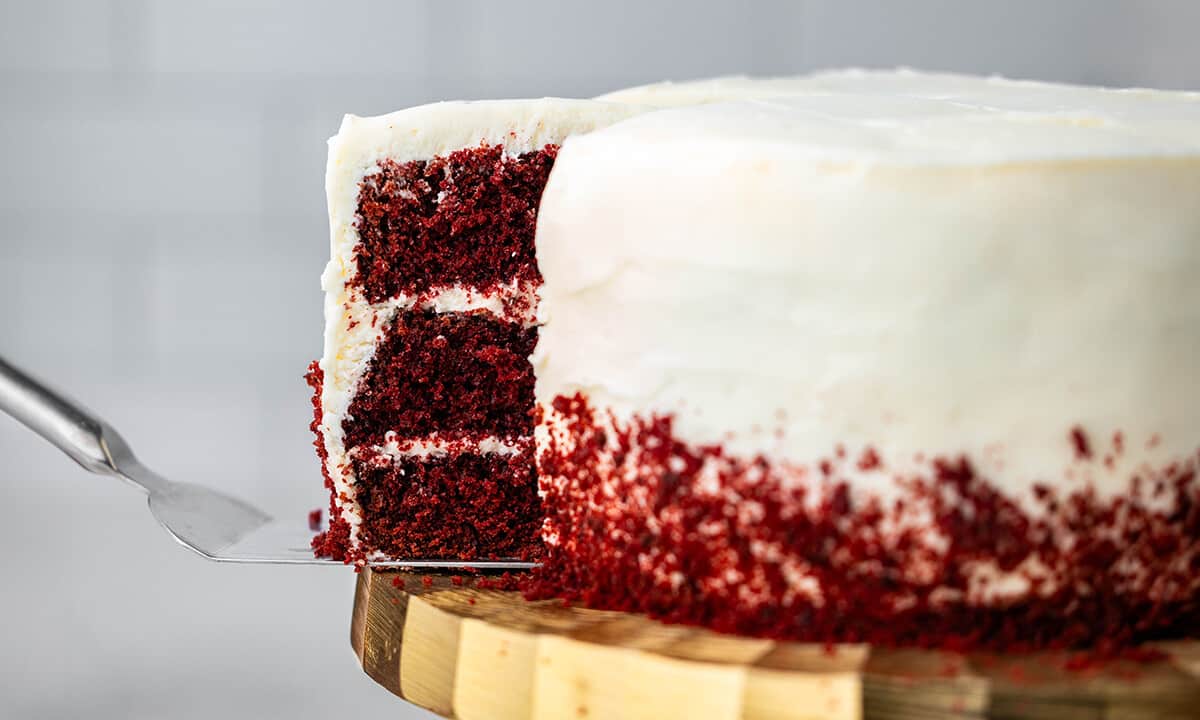
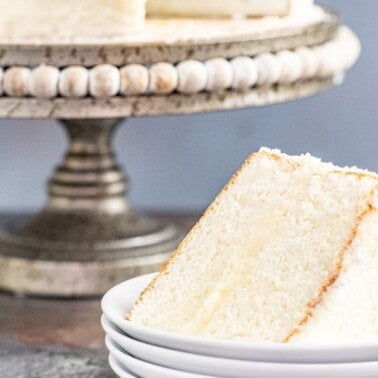
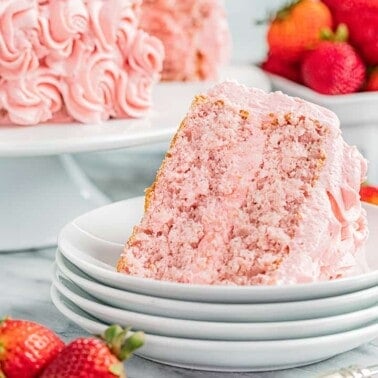
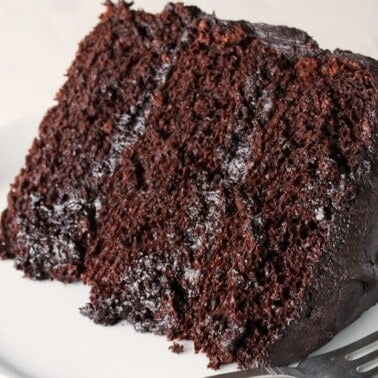
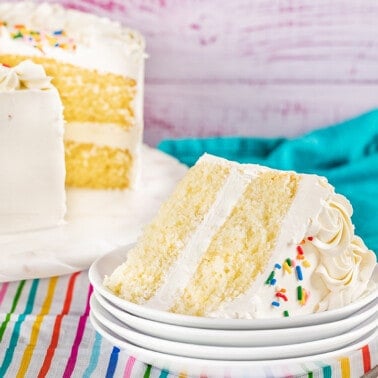
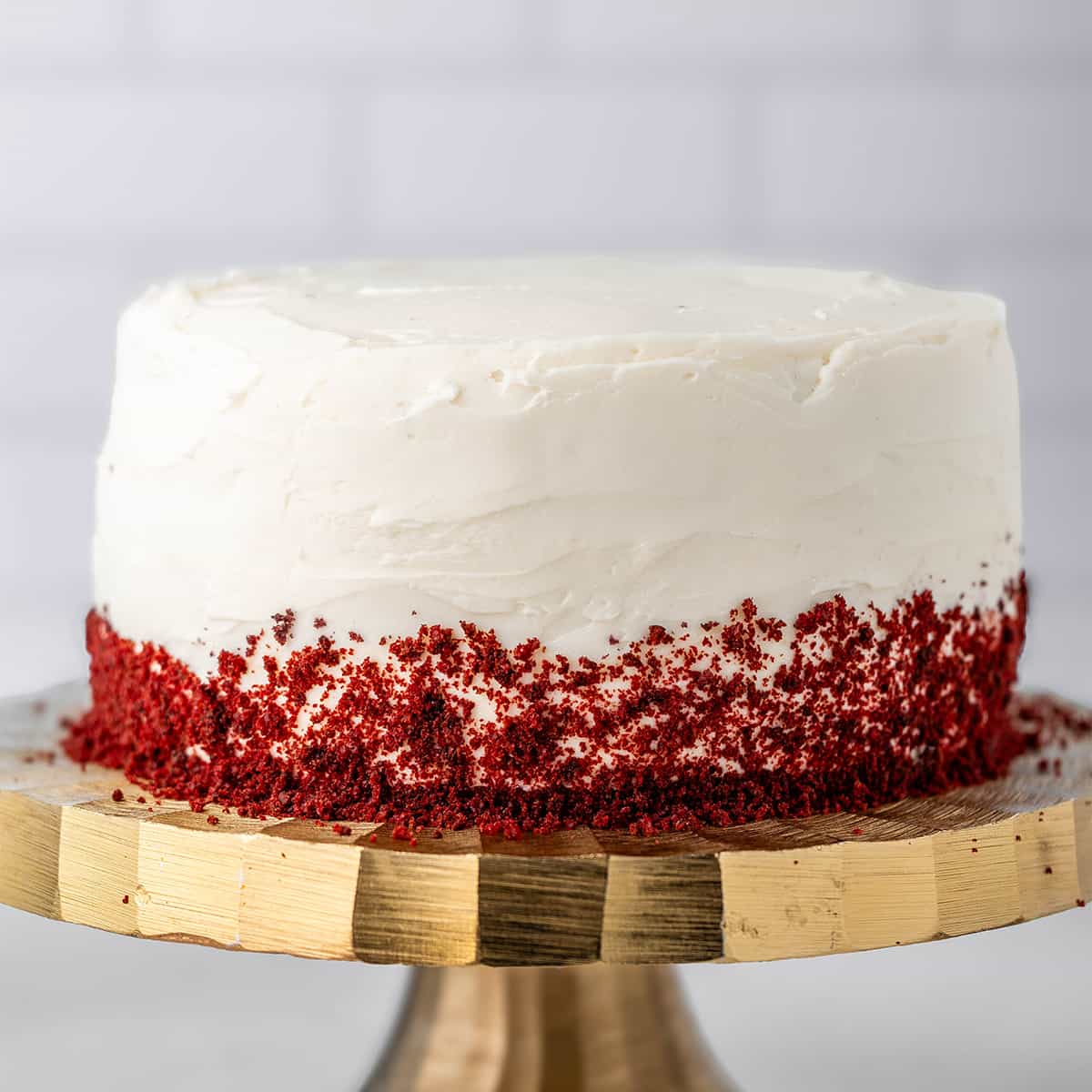
A friend of mine recommended this site for me to take a look at. The picture of the cake is beautiful. I won’t argue that the recipe and discussion of mandatory buttermilk use. The tang of buttermilk makes the cake. The original red velvet recipe came from the Waldorf- Astoria Hotel and was made with Ermine frosting. If you give that frosting a try with your recipe the velvety smooth light icing makes the cake so much better. The cream cheese frostings are so distinct and much stronger then the flavor you just worked so hard to perfect in your cake. Ermine can be temperamental but if you want to go traditional it is well worth it. I know some people will always love the more modern addition of the cream cheese frosting.
Just wondering why you use cornstsrch in the red velvet but not tje chocolate cake?
To get the appropriate structure of the cake. They are similar recipes, but it takes some adjustments to turn it into an equally amazing red velvet cake.
Hi there! How many cupcakes would this make? And one what temp for how long? Thank you!
Hi there! How much cupcakes would this make? And at what temperature and how many minutes? Thank you!!
About 36 cupcakes, 20-22 minutes at 325 degrees F.
Excellent recipe. For those who want a lower sugar frosting, we use 2 extra creamy cool whip, 1/3 cup room temp milk, 8oz softened cream cheese and 2 small packages of instant white chocolate pudding. Mix the pudding in the milk, add cream cheese and then the cool whip. For even more sugar-free, use 2 packages of sugar-free instant pudding.
This sounds AMAZING. I’m Diabetic and sometimes have diabetic clients. Will definitely keep this in mind! So you used cool whip, as in the tub cool whip?
Hi Rachel,
I would like to use less Cocoa powder as I would like a brighter red. I think the cocoa powder in south africa is a bit darker than normal and it comes out to dark. How can a adjust the recipe to be able to do this. I have made this cake a lot of times and it is the best red velvet cake ever. Thank you for sharing it with us.
Belinda
Yes, you can cut the cocoa powder to 1/4 cup and it’ll still work fine.
Hi there ! I made your cake last week and everyone loved it ! It just did not turn red as seen in your photo. Instead it was more of deep brownish red. Should I add more food colouring to make it bright red ?
Really old fashioned red velvet cake really only had a slight redness. The amount of red you’ll get will depend on the cocoa powder you use (some are darker than others) and the dye you use. You can halve the cocoa powder and add more dye if you want a brighter red.
Thanks for this awesome and amazing recipe Rachel! Red velvet, check. Cream cheese frosting, check. Moist factor 100, check. Everyone loved it! I will be trying out your Homemade coconut cake soon.
One of the all-time favorites to come out of Bakery is those beautifully designed and crafted cakes in multiple varieties, flavor or the occasion may be.
I want to make this for my son’s valentines birthday but i was planning on making a heart shaped cake using the method with a square 8×8 pan and a round 8 in pan cut in half to make the heart shape. Would this make enough for two layers of that method, do you think?
Yes. You’ll have leftover batter.